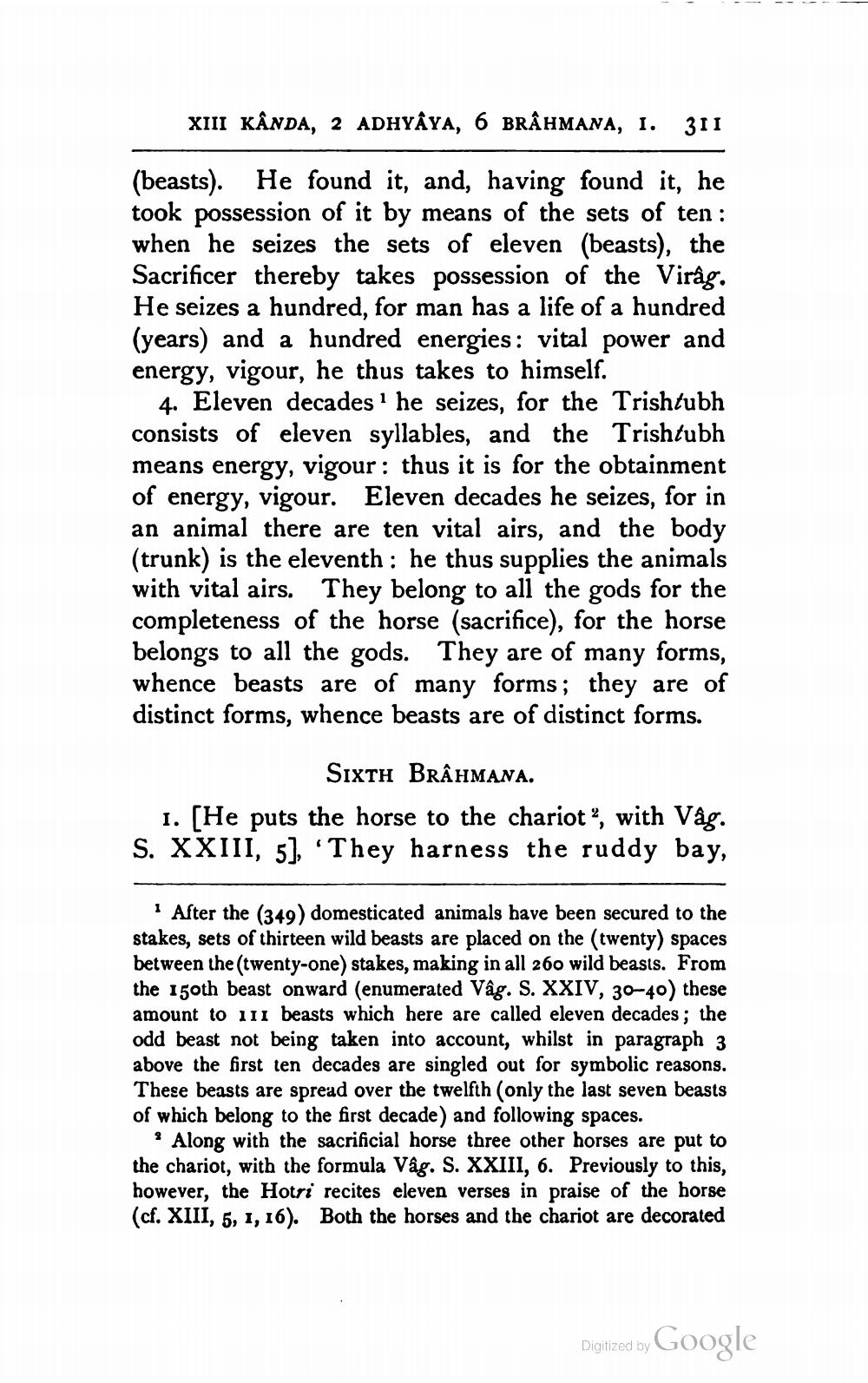________________
XIII KÂNDA, 2 ADHYÂYA, 6 BRÂHMANA, 1. 311
(beasts). He found it, and, having found it, he took possession of it by means of the sets of ten : when he seizes the sets of eleven (beasts), the Sacrificer thereby takes possession of the Virag. He seizes a hundred, for man has a life of a hundred (years) and a hundred energies: vital power and energy, vigour, he thus takes to himself.
4. Eleven decades' he seizes, for the Trishtubh consists of eleven syllables, and the Trishtubh means energy, vigour : thus it is for the obtainment of energy, vigour. Eleven decades he seizes, for in an animal there are ten vital airs, and the body (trunk) is the eleventh : he thus supplies the animals with vital airs. They belong to all the gods for the completeness of the horse (sacrifice), for the horse belongs to all the gods. They are of many forms, whence beasts are of many forms; they are of distinct forms, whence beasts are of distinct forms.
Sixth BRÂHMANA. 1. (He puts the horse to the chariot”, with Vâg. S. XXIII, 5], 'They harness the ruddy bay,
After the (349) domesticated animals have been secured to the stakes, sets of thirteen wild beasts are placed on the twenty) spaces between the twenty-one) stakes, making in all 260 wild beasts. From the 150th beast onward (enumerated Vâg. S. XXIV, 30-40) these amount to 111 beasts which here are called eleven decades; the odd beast not being taken into account, whilst in paragraph 3 above the first ten decades are singled out for symbolic reasons. These beasts are spread over the twelfth only the last seven beasts of which belong to the first decade) and following spaces.
Along with the sacrificial horse three other horses are put to the chariot, with the formula Vâg. S. XXIII, 6. Previously to this, however, the Hotri recites eleven verses in praise of the horse (cf. XIII, 5, 1, 16). Both the horses and the chariot are decorated
Digitized by Google




